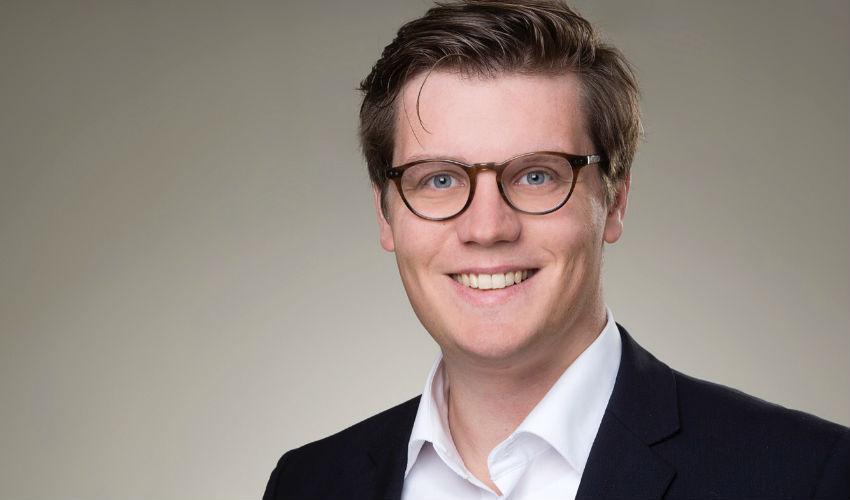
Cristoph Wolf Wants to Make Teams More Productive
THE NEW ASSISTANT PROFESSOR STUDIES DYNAMIC INCENTIVES WHEN PLAYERS' KNOWLEDGE OF THE ENVIRONMENT EVOLVESIt was during his undergraduate studies in Economics at the University of Mannheim that Christoph Wolf started working on a project regarding industrial organization as a research assistant. “That was the first time I got in touch with academic research in Economics and I enjoyed it a lot. I learned how challenging but at the same time exciting research can be”. Seven years later, Wolf is incoming Assistant Professor at Bocconi’s Department of Economics where, starting from 1 September, he will pursue his research interests in dynamic incentive problems where two or more individuals interact over time and learn about the economic environment.
His two stints at Yale and at the Toulouse School of Economics helped him to expand his knowledge and shape his thinking about economic problems. “It was a great experience to be taught by leading scholars in the field”, he recalls. “Discussing with them improved my projects a lot”. In his second year at Yale, he attended a Mathematical Economics course. “We studied several topics within dynamic games and dynamic mechanism design. I found these incredibly exciting and started my first project based on what I had learned in that course”.
In his job market paper Informative Milestones in Experimentation, Wolf studies a continuous-time moral hazard problem with private learning about a project of unknown quality. This is the case of a venture capitalist funding a startup. “At the beginning, no one knows if the agent will be able to complete the project. With failures, the parties become more and more pessimistic, making it harder for the principal (that is the venture capitalist) to make the agent work”. A prototype is an informative milestone and gives the venture capitalist information about the future profitability of the project. “However, as agent’s actions can be unobservable but are nonetheless a source of information, the agent has a chance to manipulate the performance of the prototype in his own favor. This is anticipated by the venture capitalist and therefore the structure of the optimal contract changes with an informative milestone”.
Wolf, together with Sinem Hidir, has also studied collaboration problems that arise when two researchers work on a joint project as a team. “We consider the setting where one of the team member’s productivity is known while the other player is privately informed about his own productivity. Usually, there is an incentive to freeride on the other player’s effort in teams. When you are not sure about the other member’s productivity, this incentive is reduced. We show that it may be optimal to assign players with unknown productivity into teams rather than players with notoriously high productivity”.
Moreover, Wolf is also interested in work that relates theory and empirics. In a collaboration with Stefan Weiergraeber, he studies the different effects of asymmetries in costs and access to information for competing firms in procurement auctions using both theoretical and empirical methods.
At Bocconi University, Wolf will teach introductory Microeconomics. “When I visited the Department of Economics”, he says, “everybody was very friendly and smart. I think this is a great environment to work in. Not to mention the beautiful location of Milan: the city is close to the mountains and I like hiking and skiing”.
by Claudio Todesco
